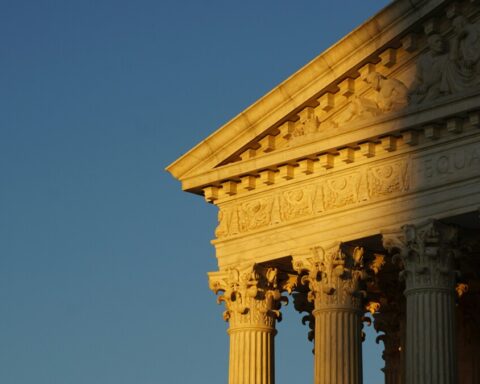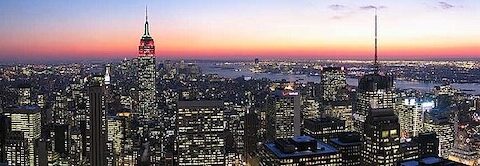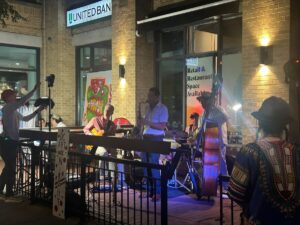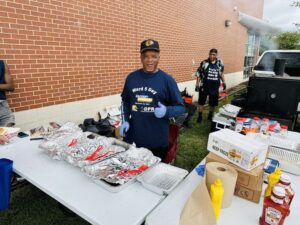Some residents say that President Donald Trump’s deployment of federal law enforcement in Washington, citing “out of control” crime, feels more like punishment rather than protection. This is especially true for residents living in Wards 1, 5, 7 and 8 — areas that are often at the center of crime statistics.
“We are scared in this community,” D.C. resident Chase Brantley said. “Seeing the National Guard in my neighborhood doesn’t make me feel safe; it makes me feel like we’re living under occupation.”
A Washington Post–Schar School poll found that 80% of D.C. residents disapproved of the federal presence, and 65% believed the move would not make the city safer.
“This federalized takeover … will naturally create a backlash,” Mark Rozell, dean at George Mason University’s Schar School of Policy and Government, said in a statement. Researchers polled residents a few days after Trump invoked Section 740 of the Home Rule Act to federalize MPD and deploy the National Guard.
D.C. Attorney General Brian Schwalb sued the administration, arguing the National Guard’s deployment violated both the Home Rule Act and the Posse Comitatus Act, which restricts military involvement in domestic policing. Critics also pointed out that federal agents were deployed without body cameras or accountability systems, undermining trust further.
Washington is unlike any other American city. Though it functions as the nation’s capital, its residents lack full autonomy over local governance, including policing. Federal oversight of the Metropolitan Police Department (MPD), cemented through congressional authority, has long shaped safety, budgets and community trust.
For many residents, the issue is not abstract, but personal, touching daily life and shaping perceptions of safety, fueling the larger fight for D.C. statehood. The district’s policing history reveals a cycle of local attempts at control and recurring federal interventions.
Early 19th-century charters granted the city authority to maintain constables and patrols, but by the late 20th century, Congress had repeatedly reasserted itself. The Home Rule Act of 1973 allowed the city to elect a mayor and council, yet Congress retained veto power over laws and budgets, including those affecting MPD. During the crack epidemic of the late 1980s, Congress demanded the city rapidly hire 1,800 new officers, a move that later backfired when poorly vetted recruits became involved in scandals such as “Operation Broken Faith.”
Trump’s decision was met with broad opposition, including from D.C. Mayor Muriel Bowser, who initially stated such a move was “unsettling and unprecedented.”
“We don’t need a presidential emergency,” Bowser said at the time. However, the mayor reversed her original stance on the federal police presence during a news conference on Aug. 27.
Ward 1 council member Brianne Nadeau, who is among residents and elected officials alike who are still feeling unsettled, has been outspoken about the National Guard presence, countering Bowser’s later statements.
“This is about power, not making D.C. safer,” Nadeau said.
In an Aug. 27 social media post on X, Nadeau wrote: “DC is under siege by our own fed govt, w/ armed military patrolling our streets & masked agents scooping up neighbors & taking them away. Our residents are afraid, hesitant to go out & to work, angry that our limited autonomy is being eroded.” She concluded with, “There is nothing welcome about this.”
Her comments replied to an X post by Ward 5 council member Zachary Parker. In his social media post he told followers, “We, as city leaders, should be unequivocal that the federal surge of officers in DC and deployment of national guardsmen on our streets are dangerous, unnecessary, and an affront to Home Rule. We ought to be real clear about that. Real clear.”
The mobilization of the National Guard to D.C. is even felt in other regions of the country. Georgia Gov. Brian Kemp announced earlier this month that he would send National Guard troops from his state to relieve the troops stationed in D.C. Kemp said his state has a history of helping in federal emergencies.
However, Democratic State Rep. Eric Bell of Jonesboro, Georgia, called this deployment reckless and a form of “government overreach.”
“This is not about public safety,” Bell said from the Georgia State Capitol. “It is an erosion of American freedom and sovereignty. It is a betrayal to the very people who stand to foot the bill — you, the taxpayers.”
Georgia GOP Chair Joshua McKoon countered this saying: “I think when we talk about keeping people safe, it’s hard to imagine a better use of government resources. In fact, I would say that that is the core function of our government.” Georgia will deploy 300 troops within the next month, joining seven other states.
The federal takeover of policing in D.C. underscores the city’s broader fight for autonomy and statehood. While violent crime remains a pressing issue, residents argue that safety cannot be dictated from Capitol Hill or the White House. Instead, they say, it requires community-driven solutions that build trust, invest in youth and reflect the lived realities of D.C.’s neighborhoods.
“We need investment in our community,” Brantley explained, “not soldiers on our streets.”
Sean Mitchell covers Ward 1 in Washington for HUNewsService.com.











